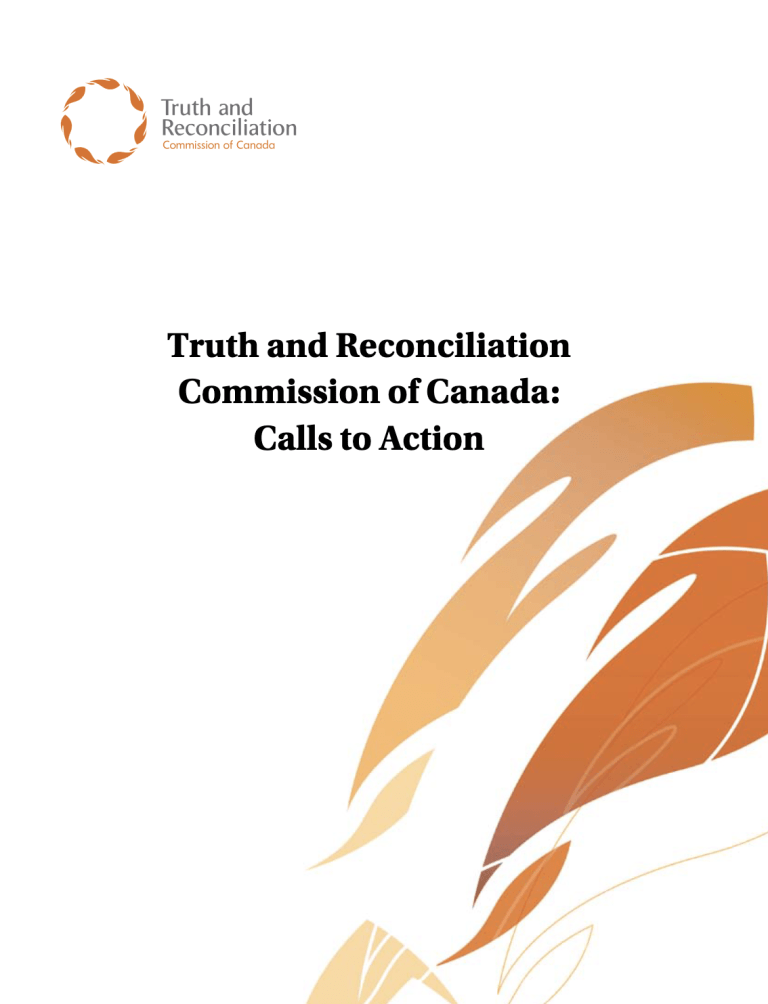8 search results
for
Faith groups
Reconciliation
Settlement agreement parties and the United Nations Declaration on the Rights of Indigenous Peoples
Recommendation 48: We call upon the church parties to the Settlement Agreement, and all other faith groups and interfaith social justice groups in Canada who have not already done so, to formally adopt and comply with the principles, norms, and standards of the United Nations Declaration on the Rights of Indigenous Peoples as a framework for reconciliation. This would include, but not be limited to, the following commitments:- Ensuring that their institutions, policies, programs, and practices comply with the United Nations Declaration on the Rights of Indigenous Peoples.
- Respecting Indigenous peoples’ right to self-determination in spiritual matters, including the right to practise, develop, and teach their own spiritual and religious traditions, customs, and ceremonies, consistent with Article 12:1 of the United Nations Declaration on the Rights of Indigenous Peoples.
- Engaging in ongoing public dialogue and actions to support the United Nations Declaration on the Rights of Indigenous Peoples
- Issuing a statement no later than March 31, 2016, from all religious denominations and faith groups, as to how they will implement the United Nations Declaration on the Rights of Indigenous Peoples.
-
Category and theme:
Groups affected:
Reconciliation
Settlement agreement parties and the United Nations Declaration on the Rights of Indigenous Peoples
Recommendation 49: We call upon all religious denominations and faith groups who have not already done so to repudiate concepts used to justify European sovereignty over Indigenous lands and peoples, such as the Doctrine of Discovery and terra nullius.-
Category and theme:
Groups affected:
Reconciliation
Church apologies and reconciliation
Recommendation 58: We call upon the Pope to issue an apology to Survivors, their families, and communities for the Roman Catholic Church’s role in the spiritual, cultural, emotional, physical, and sexual abuse of First Nations, Inuit, and Métis children in Catholic-run residential schools. We call for that apology to be similar to the 2010 apology issued to Irish victims of abuse and to occur within one year of the issuing of this Report and to be delivered by the Pope in Canada.-
Category and theme:
Audience:
Groups affected:
Reconciliation
Church apologies and reconciliation
Recommendation 59: We call upon church parties to the Settlement Agreement to develop ongoing education strategies to ensure that their respective congregations learn about their church’s role in colonization, the history and legacy of residential schools, and why apologies to former residential school students, their families, and communities were necessary.-
Category and theme:
Audience:
Groups affected:
Reconciliation
Church apologies and reconciliation
Recommendation 60: We call upon leaders of the church parties to the Settlement Agreement and all other faiths, in collaboration with Indigenous spiritual leaders, Survivors, schools of theology, seminaries, and other religious training centres, to develop and teach curriculum for all student clergy, and all clergy and staff who work in Aboriginal communities, on the need to respect Indigenous spirituality in its own right, the history and legacy of residential schools and the roles of the church parties in that system, the history and legacy of religious conflict in Aboriginal families and communities, and the responsibility that churches have to mitigate such conflicts and prevent spiritual violence.-
Category and theme:
Audience:
Groups affected:
Reconciliation
Church apologies and reconciliation
Recommendation 61: We call upon church parties to the Settlement Agreement, in collaboration with Survivors and representatives of Aboriginal organizations, to establish permanent funding to Aboriginal people for:- Community-controlled healing and reconciliation projects.
- Community-controlled culture- and language revitalization projects.
- Community-controlled education and relationship-building projects. iv. Regional dialogues for Indigenous spiritual leaders and youth to discuss Indigenous spirituality, self-determination, and reconciliation.
-
Category and theme:
Audience:
Groups affected:
Reconciliation
Education for reconciliation
Recommendation 64: We call upon all levels of government that provide public funds to denominational schools to require such schools to provide an education on comparative religious studies, which must include a segment on Aboriginal spiritual beliefs and practices developed in collaboration with Aboriginal Elders.-
Category and theme:
Audience:
Groups affected:
Reconciliation
Missing children and burial information
Recommendation 74: We call upon the federal government to work with the churches and Aboriginal community leaders to inform the families of children who died at residential schools of the child’s burial location, and to respond to families’ wishes for appropriate commemoration ceremonies and markers, and reburial in home communities where requested.-
Category and theme:
Groups affected:
